This article has been reviewed according to Science X's editorial process and policies. Editors have highlighted the following attributes while ensuring the content's credibility:
fact-checked
reputable news agency
proofread
Rare 7-foot fish washed ashore on Oregon's coast garners worldwide attention
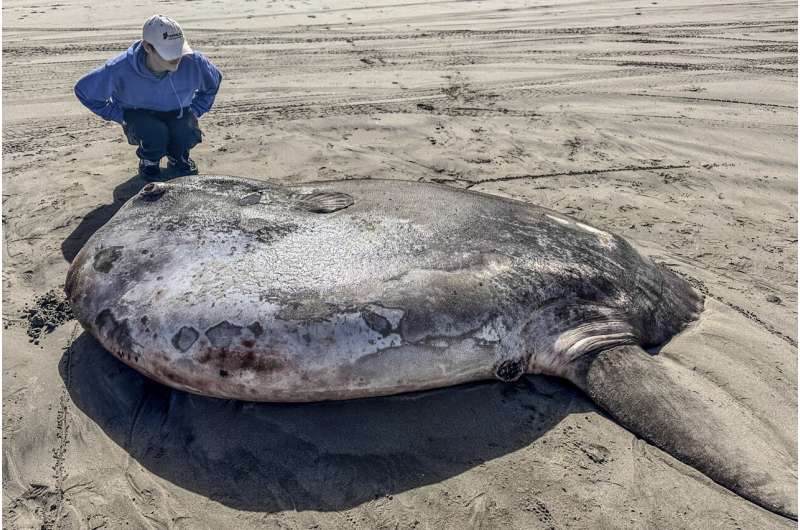
A massive rare fish thought to only live in temperate waters in the southern hemisphere has washed up on Oregon's northern coast, drawing crowds of curious onlookers intrigued by the unusual sight.
The 7.3-foot (2.2 meter) hoodwinker sunfish first appeared on the beach in Gearhart on Monday, the Seaside Aquarium said in a media release. It was still on the beach on Friday and may remain there for weeks, the aquarium said, as it is difficult for scavengers to puncture its tough skin.
Photos provided by the aquarium showed a flat, round, gray fish lying on its side in the sand. Photos of a person kneeling next to it, and another of a pickup truck parked next to it, gave a sense of its large scale and size.
The stir it has created on social media prompted a New Zealand-based researcher who has studied sunfish to contact the aquarium. After looking at photographs of the fish, Marianne Nyegaard was able to confirm that it was indeed a hoodwinker sunfish—rarer than the more common ocean sunfish—and said she believed it may be the largest such fish ever sampled, according to the aquarium.
In research published in 2017, Nyegaard discovered through genetic sampling and observation that the hoodwinker sunfish, or Mola tecta, was a different species than the ocean sunfish, Mola mola. "Tecta" in Latin means hidden or disguised, referring to a new species that had been "hiding in plain sight," the aquarium said.
-
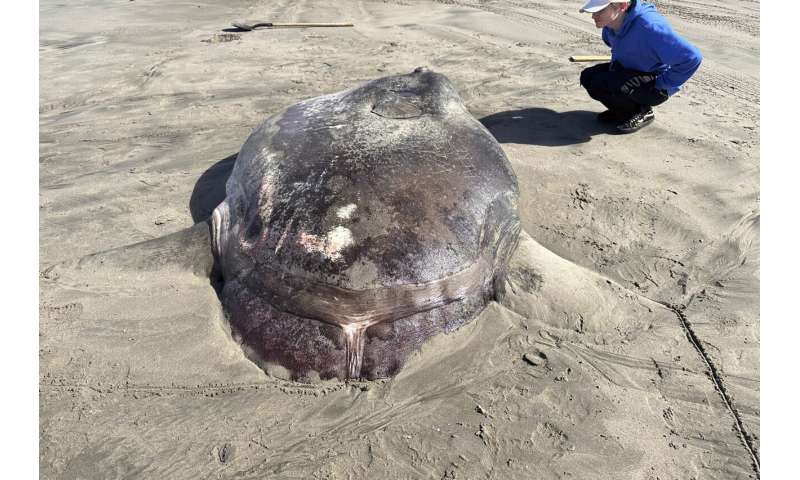
This image provided by Seaside Aquarium shows a hoodwinker sunfish that washed ashore on June 3, 2024, on a beach in Gearhart, Ore. Credit: Tiffany Boothe/Seaside Aquarium via AP -
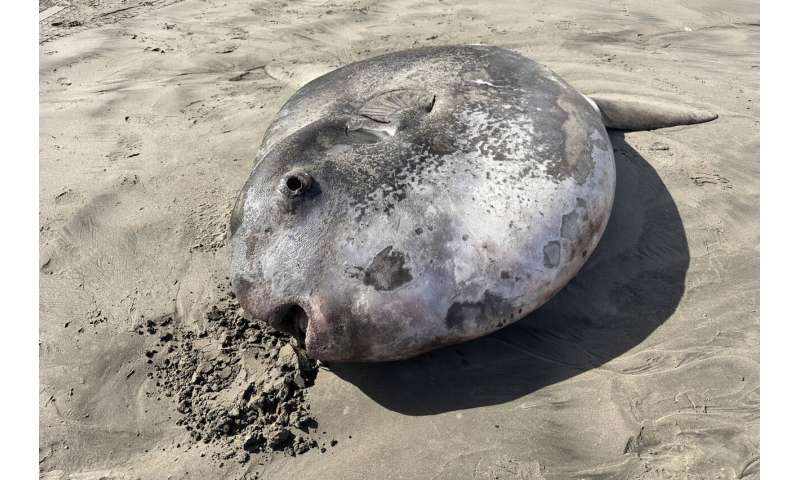
This image provided by Seaside Aquarium shows a hoodwinker sunfish that washed ashore on June 3, 2024, on a beach in Gearhart, Ore. Credit: Tiffany Boothe/Seaside Aquarium via AP -
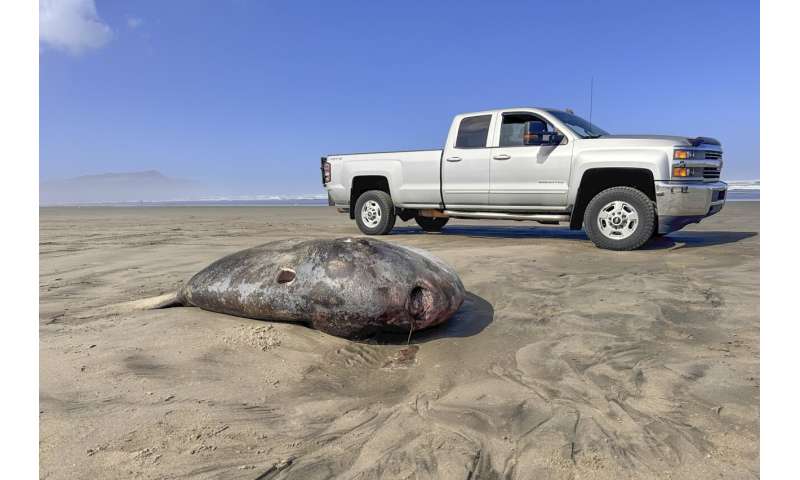
This image provided by Seaside Aquarium shows a hoodwinker sunfish that washed ashore on June 3, 2024, on a beach in Gearhart, Ore. Credit: Tiffany Boothe/Seaside Aquarium via AP -
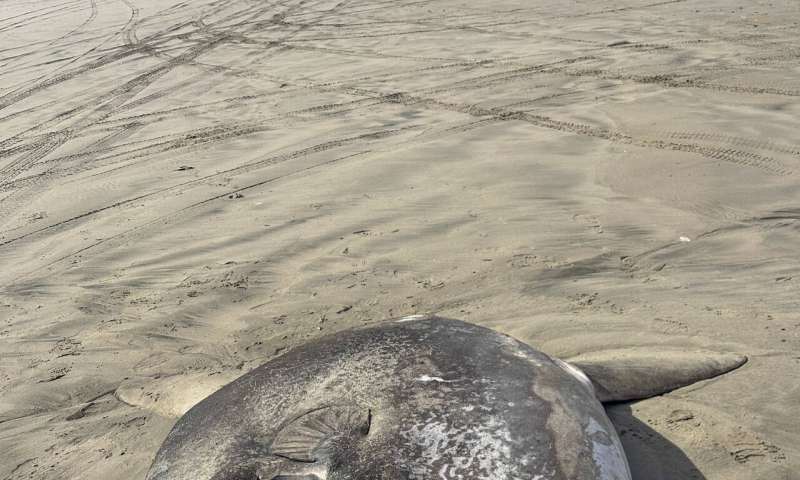
This image provided by Seaside Aquarium shows a hoodwinker sunfish that washed ashore on June 3, 2024, on a beach in Gearhart, Ore. Credit: Tiffany Boothe/Seaside Aquarium via AP
A hoodwinker sunfish washed ashore on the California coast in 2019. It has washed ashore again more recently in California and Alaska as well, challenging the theory that it only lives in the southern hemisphere, the aquarium said. It's also likely that the fish has washed ashore in other parts of the Pacific Northwest but was mistaken for the more common ocean sunfish at the time, the aquarium added.
© 2024 The Associated Press. All rights reserved. This material may not be published, broadcast, rewritten or redistributed without permission.













